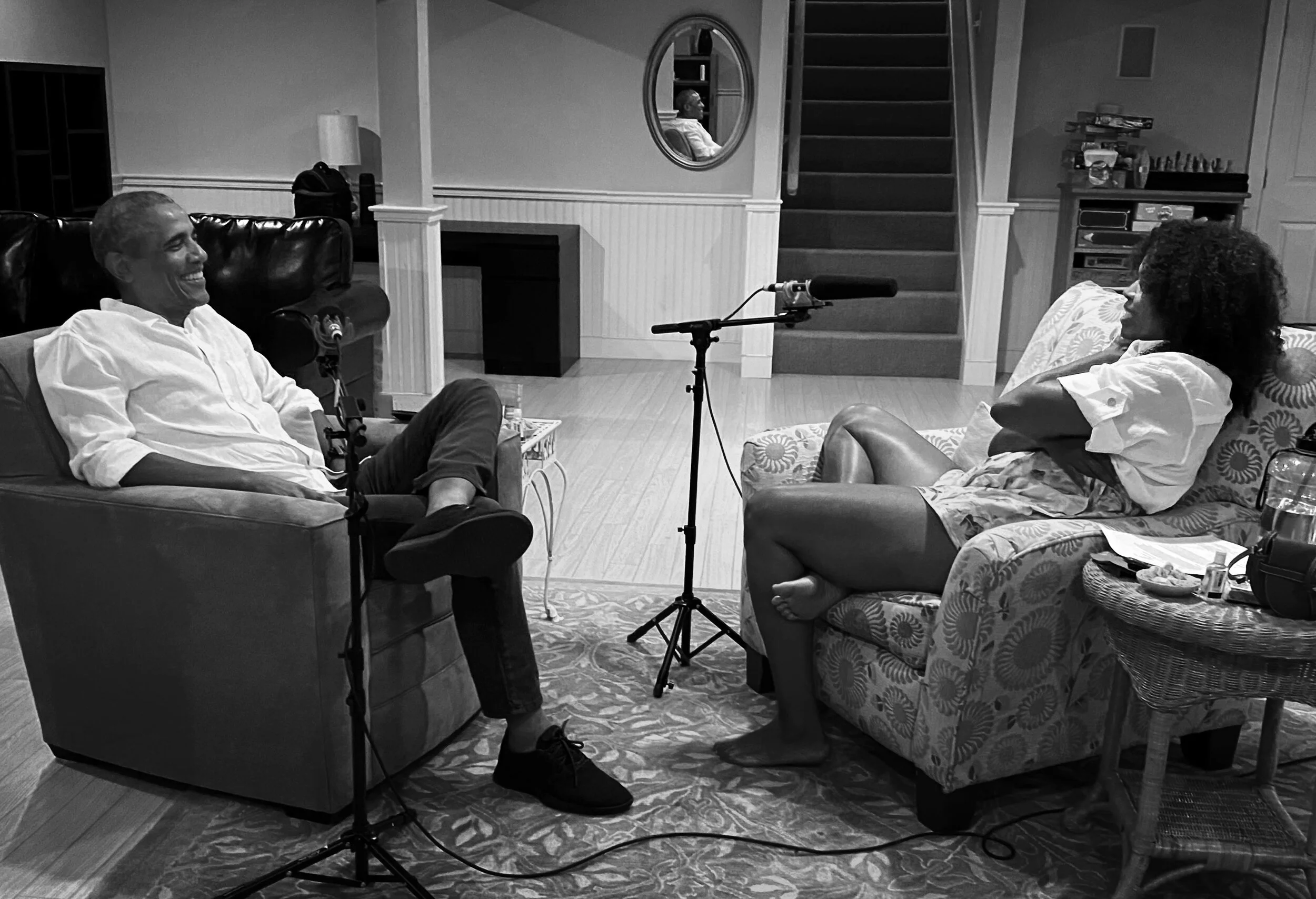Michelle Obama's Podcast
Photo via @BarackObama
Michelle Obama is back. After a book and a Netflix documentary, she will be a regular voice in our day-to-day, imparting some of her hard-won wisdom to us in the form of a new podcast series created with her and Barack’s production company Higher Ground, and Spotify. “I wanted to start at the most basic level,” she explains at the start of her first episode. “In these episodes, we’ll be discussing the relationships that make us who we are.”
“What I love about these conversations is that they’re topics and issues that we’re all dealing with, no matter what’s going on; whether that’s a pandemic or a nationwide reckoning with race or just any old summer afternoon sitting with our own thoughts.”
Her first guest is, suitably, her husband, former President of the United States, Barack Obama. They are an incredible (and here, adorable) couple and each as captivating a speaker as the other – though Barack always allows Michelle to take her lead.
The topic is timely, as they discuss the power of communities, and with the political unrest around the world, how vital it is that we have our place in them.
“[We’re starting by] discussing one of those relationships that can take some time to figure out. That’s our relationship to our communities and to our country. What we’re really talking about is our place in this world. How we feel about it and what we can do with the power we have.”
They explain their sense of community steamed from their family environment; how Michelle’s was a more ‘nuclear’ set-up and Barack’s different as he was largely raised by a single mother and his grandparents.
“One of the things we talked about a lot it that, one way or another, they [various families] didn’t have to do it completely alone,” Barack said. “That there was a neighbourhood or a community or extended families. Structures around that helped families raise their kids in a loving environment. And they didn’t feel as isolated… [And as kids], we felt loved and supported. And that’s obviously where a community starts. “
The challenge, now they say, is that these support systems are shrinking.
“You then have all these institutions that used to be support systems – shrinking. So more and more, people start thinking in terms of... Me. And I do things on my own. And not us. I pursue a career. I make money. And then, if I’m successful enough, I can be self-sufficient and my family can be self-sufficient. Of course, the challenge is that that kind of set up creates a huge separation between people, between economic levels. But now you’ve got separation within race.”
Having it all
Later, they move on to the concept of “having it all” and what that meant for them growing up – “if you had it all, it meant someone else had nothing” – as opposed to what is getting taught to young people today.
“Every elder lived with someone. They shared expenses, they shared households, they shared the duties of raising kids. So, there wasn’t this feeling that you were supposed to do this thing called loving and supporting your family on your own. You know that seems to be kind of a new thing,” said Michelle.
“I think I figured out once I got to school that if I am chasing after my own success, that somehow, I am going to end up alone and unhappy,” added Barack. …” and I think that culturally, we’ve become much more focused on stuff and much less focused on relationships and family.”
“Because the motto has become not that you sacrifice but you should be able to have it all. And how do you get it? And if you're not getting it then something is wrong,” adds Michelle.
“But that’s what we’re teaching young people. You should, you have a career and you should earn a lot of money. You should be fulfilled. You should have your passion. You shouldn’t have to sacrifice that much. You should have it all. We’re all on our own. It’s not Us. It’s us against them.“
“And that we can’t do this stuff and we’re not supposed to do this stuff. We weren’t built to do this thing called life in a vacuum.“
The entire podcast is inspiring, insightful, and a must-listen.
Jennifer McShane, July 2020.
join the conversation
share and comment below, we’d love to hear your thoughts…
















